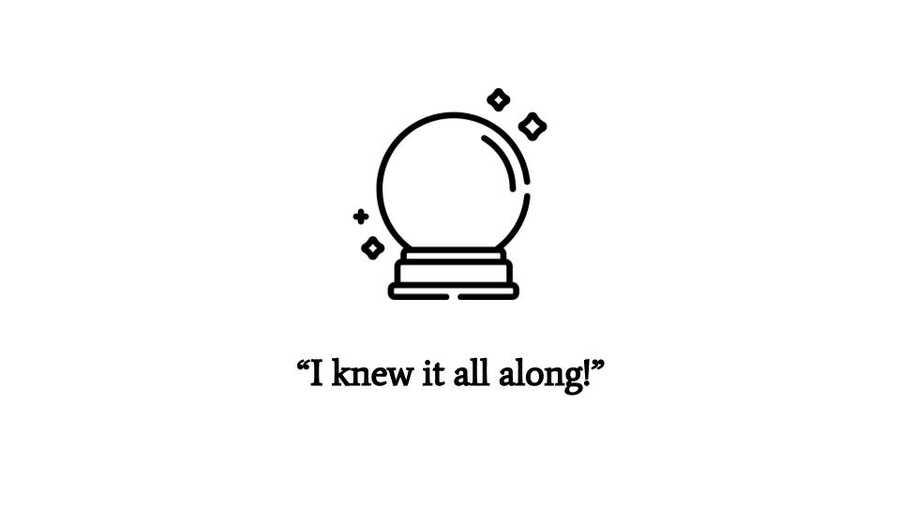Hindsight Bias: Why You’re Not As Smart As You Think You Are - Farnam Street
Curated from: fs.blog
Ideas, facts & insights covering these topics:
4 ideas
·3.06K reads
13
Explore the World's Best Ideas
Join today and uncover 100+ curated journeys from 50+ topics. Unlock access to our mobile app with extensive features.
Hindsight Bias
Hindsight bias is a false belief that our judgement is better than it actually is when we look back and see the events. Reality appears more predictable after an event happens. This is also known as the ‘Knew-it-all-along effect’.
This bias makes people less accountable for their decisions, and overconfident in their ability to make those decisions, due to the various mental models that they have developed.
157
1.15K reads
Interpretation Vs Reality
Prior knowledge of an event’s outcome anchors the mind towards a certain kind of interpretation of how the event will unfold.
This makes the individual confirm the outcome to fit their existing expectations. If the outcome is entirely different from the expected result, the mind tries to justify the claimed foresight. The mind is constantly learning and updating previously held knowledge, and hindsight bias make the process less of a burden.
126
708 reads
Availability Bias
As often heard, the simplest explanations tend to be the most likely, and the more difficult it is for us to imagine an outcome, the less likely it is. Any new information then tends to be processed by the prior judgements and speculations, making our justifications solidify in our minds.
Example: When a couple breaks up, the small problems or quarrels noticed earlier seems to indicate that the breakup was obvious and expected. The same problems were not highlighted by the brain if the couple was together.
131
596 reads
Protection From Hindsight Bias
For protection from the hindsight bias, we can discipline ourselves to make explicit decisions based on actual, known facts, in a recorded process.
Having an explicit, written documentation can ensure that we and the external observers were objective in the decision, and it was not based (even unconsciously) on bias and prejudice.
136
612 reads
IDEAS CURATED BY
Cameron 's ideas are part of this journey:
Learn more about problemsolving with this collection
How to set boundaries to protect your energy
How to cultivate positive energy
Why rest and recovery are important
Related collections
Similar ideas
Read & Learn
20x Faster
without
deepstash
with
deepstash
with
deepstash
Personalized microlearning
—
100+ Learning Journeys
—
Access to 200,000+ ideas
—
Access to the mobile app
—
Unlimited idea saving
—
—
Unlimited history
—
—
Unlimited listening to ideas
—
—
Downloading & offline access
—
—
Supercharge your mind with one idea per day
Enter your email and spend 1 minute every day to learn something new.
I agree to receive email updates

